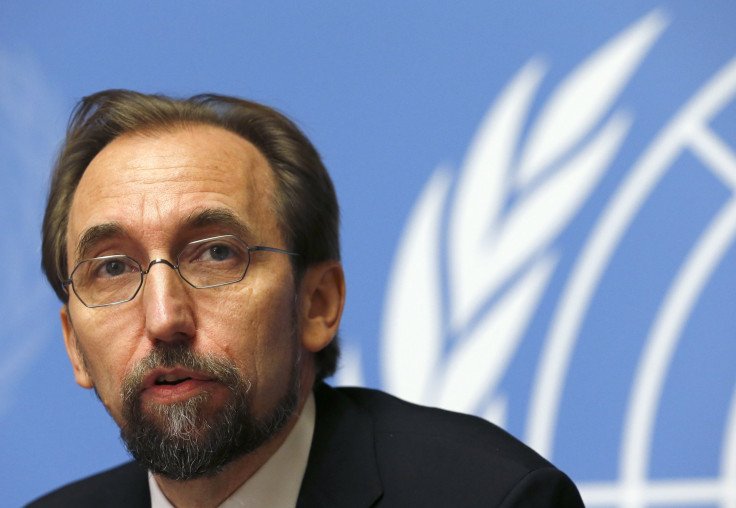Donald Trump Compared To ISIS: Republican Propaganda Mirrors Islamic State Group, UN Leader Claims

Donald Trump rails against the Islamic State group in his campaign speeches, but one UN official says he has at least one thing in common with the terror group.
Zeid Ra'ad al-Hussein, the UN high commissioner for human rights, said Tuesday Trump's rhetoric on issues such as immigration and law and order mirror the way the terror group better known as ISIS appeals to followers and potential recruits. Al-Hussein called out multiple global conservatives, including Trump, pro-Brexit politician Nigel Farage and Dutch politician Geert Wilders during a speech at a security conference in The Hague.
"[They all] seek in varying degrees to recover a past, halcyon and so pure in form, where sunlit fields are settled by peoples united by ethnicity or religion – living peacefully in isolation, pilots of their fate, free of crime, foreign influence and war," al-Hussein said, according to CNBC. "A past that most certainly, in reality, did not exist anywhere, ever."

Al-Hussein warned against what he sees as a growing trend of xenophobia and bigotry across the globe, implying that Trump's rhetoric, which has struck a chord with white nationalist groups who seek a return to a more purely white, Christian-centric America, has a similar structure and appeal to ISIS propaganda that calls for Muslims to fight for a return to conservative Islamic principles. He mentioned Trump once by name while referring to other far-right leaders across the Western world.
But al-Hussein was careful to qualify that Trump's actions, as well as those of other nationalist leaders, warrant no comparisons to the actual atrocities committed by ISIS around the world.
"Make no mistake; I certainly do not equate the actions of nationalist demagogues with those of [ISIS]," he said. "But in its mode of communication, its use of half-truths and oversimplification, the propaganda of [ISIS] uses tactics similar to those of the populists."
The comparison comes days after the publishing of analysis from Foreign Affairs magazine that concluded that the divisiveness sowed between Muslims and the Western world by Trump's rhetoric makes the GOP nominee the preferred candidate of the the terror group's supporters — experts say ISIS recruiters use a perceived war between Islamic ideals and the Western world to court potential followers.
Trump has repeatedly called for a temporary ban on Muslim immigration into the U.S. in response to terrorism and insisted that U.S. politicians must identify acts of terror as "radical Islamic terrorism" to adequately address the threat. President Barack Obama, as well as many foreign policy experts, have rejected those ideas.
"What exactly would using this language accomplish? What exactly would it change?" Obama asked in June. "Would it bring in more allies? Is there a military strategy that is served by this? The answer is none of the above. Calling a threat by a different name does not make it go away."
© Copyright IBTimes 2024. All rights reserved.






















